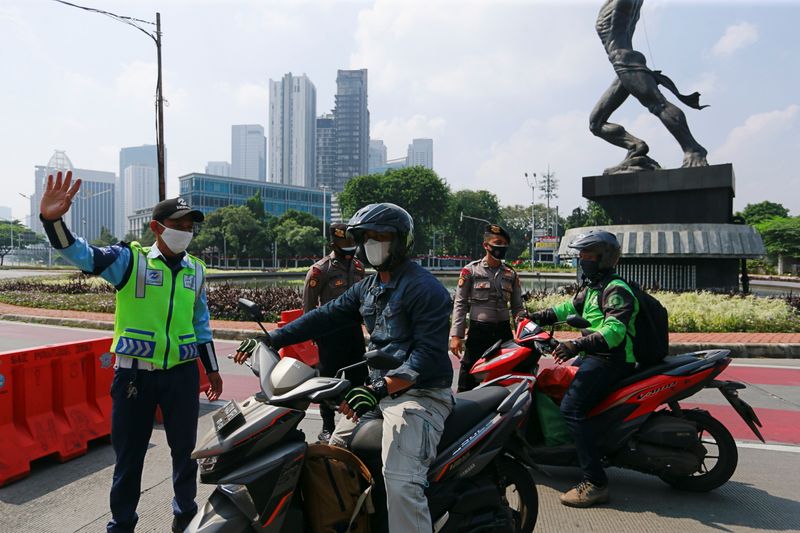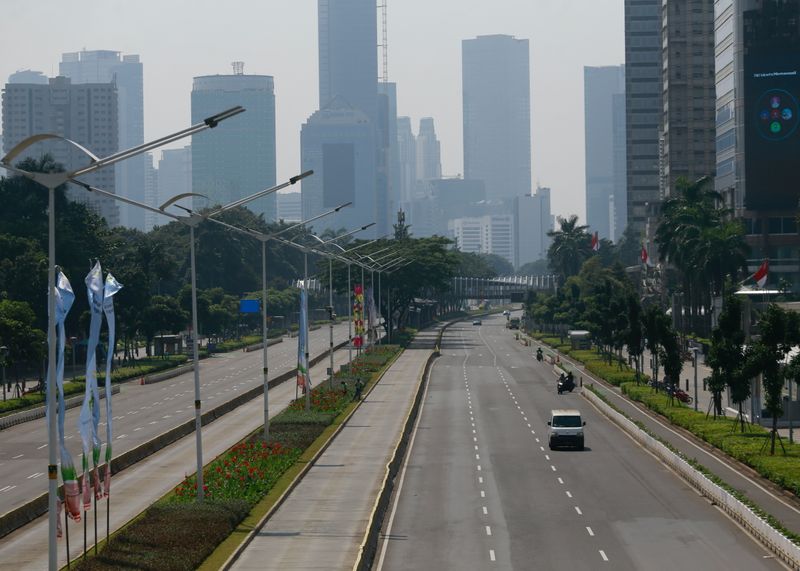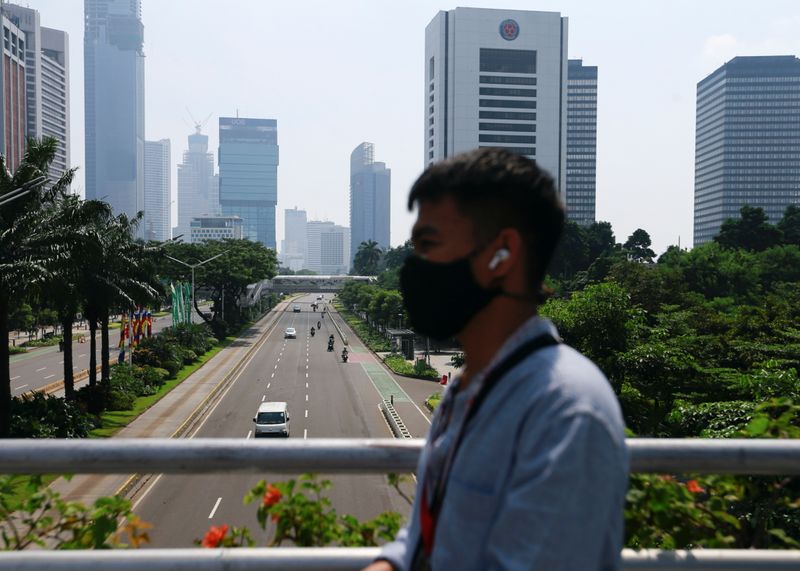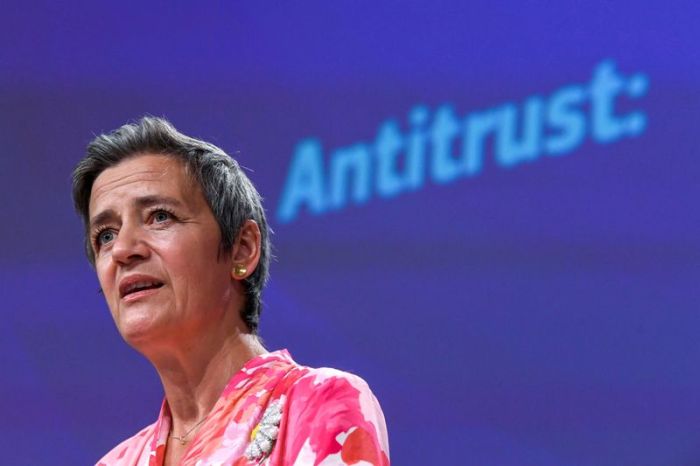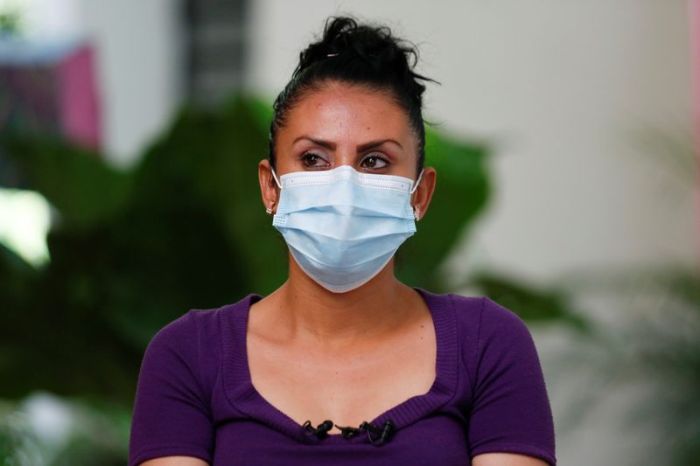By Yuddy Cahya Budiman and Tabita Diela
JAKARTA (Reuters) -The next two weeks are critical for the success of Indonesia’s efforts to rein in the coronavirus, as infections could rise until Saturday’s tougher curbs, affecting more than 100 million people, begin to show results, a minister said.
As it battles one of Asia’s worst virus outbreaks, the world’s fourth-most populous nation reported 27,913 new infections in the latest of many peaks over the past two weeks.
“In the next 10 days, maybe two weeks, cases can continue to rise,” despite tougher curbs on the islands of Java and Bali, as some infections could now be in the incubation period, said Luhut Pandjaitan, the minister overseeing the COVID-19 response.
“This two weeks is a critical time for us.”
The new curbs, such as tighter travel checks, a ban on restaurant dining and outdoor sports and the closure of non-essential workplaces, run until July 20, but could be extended, if necessary, to bring daily cases below 10,000.
To keep people home, police threw up road blocks and more than 400 checkpoints across Java, the archipelago’s most populous island, and the resort island of Bali, with more than 21,000 officers enforcing curbs and helping in random testing.
Traffic in the capital, Jakarta, in western Java, was much lighter than usual, with trains and buses nearly empty, but some people still flouted the curbs to jog and ride bicycles, even though main roads were blocked.
One stroller, Clement, 45, who was accompanied by his wife, told Reuters he disagreed with the curbs, despite having lost a friend to the respiratory disease.
“We know it’s dangerous, but at least if we want to go to the mall, or somewhere, we should just show our vaccine (certificate) and maybe an antigen (test result),” he said.
In Bali’s Ubud art market, saleswoman Ketut Suwarni lamented the curbs and a delay in reopening for foreign tourists, which had been planned for this month.
“We’ve been closed for 15 months and have been making preparations, but suddenly these restrictions,” she said, adding that she expected sales, which had risen after domestic tourists returned, to drop again. “We’re confused now.”
The highly infectious Delta variant, first identified in India where it caused a spike in infections, is spreading in Indonesia and pushing hospitals across Java to the brink.
In a statement, independent data initiative Lapor-COVID-19 said the medical system had “collapsed” after its analysis found at least 265 deaths outside of hospitals, at a time when people were isolating themselves at home or queued for emergency beds.
An official of the health ministry, Siti Nadia Tarmizi, denied that medical facilities had collapsed, but did not comment on deaths without medical care.
With medical facilities stretched close to capacity, demand for oxygen and drugs has surged as many people isolate themselves at home, driving up prices in pharmacies and online.
The health ministry has capped prices of drugs such as favipiravir, remdesivir and ivermectin, Health Minister Budi Gunadi Sadikin said.
In Jakarta, the government has converted some office halls into makeshift isolation centres, in order to ensure more beds for patients, state news agency Antara said.
Authorities are also trying to speed vaccination efforts in the worst-hit areas. The inoculation campaign has covered just 7.7% of the 181.5 million people it targeted this year.
Jakarta launched vaccination this weekend at a football stadium for children aged 12 to 17, aiming to inject more than 20,000.
Indonesia’s tally of infections stands at 2.26 million, with a death toll of more than 60,000.
(Reporting by Yuddy Cahya Budiman and Tabita Diela; Additional reporting by Fransiska Nangoy in Jakarta and Nyimas Laula in Ubud; Writing by Gayatri Suroyo; Editing by William Mallard and Clarence Fernandez)

